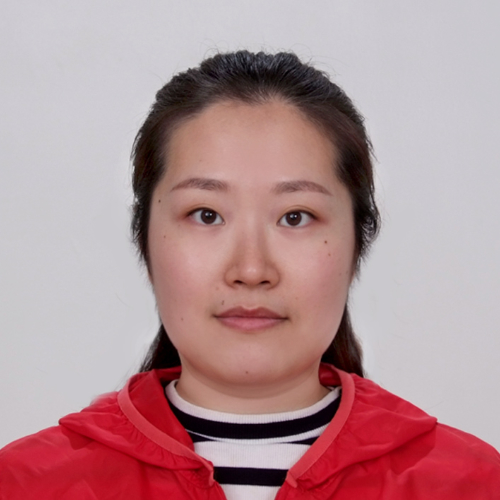
Dr Myo Zin Aung, Research Associate
Dr Myo Zin Aung is a Research Associate at the Maritime Safety Research Centre (MSRC) of the Department of Naval Architecture, Ocean & Marine Engineering (NAOME) at the University of Strathclyde since October 2021. He obtained his BEng (Naval Architecture) degree in 2016 from Myanmar Maritime University and continued his studies as a Japanese Government Scholarship (MEXT) student at Osaka University and received MEng (Global Architecture) and PhD degrees in 2018 and 2021 respectively. His doctoral research was focused on ship manoeuvring and control under extreme weather conditions to establish minimum propulsion power requirements under the EEDI regulations.
His research interest includes mathematical modelling of ship motions, environmental forces and propulsion plants, ship trajectory optimization and optimal control, ship design and optimization, computational fluid dynamic (CFD), machine learning and so on. Since he joined MSRC, he has been contributing to different research projects including SafePASS, HyShip, CMDC-NEPTUNE, TrAM, ShipFC and EcoShipyard.

Xue Xu, Research Associate
Dr Xue Xu is a Research Associate in the Maritime Safety Research Centre (MSRC) since 2021. She obtained her BEng (Hons) degree in 2013 at the University of Strathclyde, and then continued her studies through doctoral research, which focused on the experimental investigation of hydrodynamic analysis on offshore floating systems, and received her PhD in 2020. Before joining MSRC, Xue had worked as a Research Associate in the Department of Naval Architecture, Ocean and Marine Engineering, University of Strathclyde, since 2019, focusing on offshore wind energy development.
Her research interests include offshore renewable energy development, decarbonisation of shipping, and risk and reliability analysis. She has been working on research projects, including machine learning in structure control of offshore floating system as a Co-Investigator, EPSRC projects – INNO-MPP and HOME-Offshore, H2020 projects – TrAM and HyShip, and in the DfT CMDC project – NEPTUNE. She is a reviewer for a number of journals (e.g. Ocean Engineering) and conferences (e.g. OMAE). She has published more than 7 papers in high impact journals and international peer review conferences.

Dr. Amin Nazemian, Research Associate
Amin Nazemian is a research associate at Department of Naval Architecture, Ocean & Marine Engineering (NAOME), University of Strathclyde. He has hold his PhD, Master and Bachelor of Science from Amirkabir University of Technology (AUT) from Iran. He joined the Maritime Safety Research Centre (MSRC) group of University of Strathclyde to take part in an ongoing Horizon2020 European Union project.
He has solid expertise in Computational Fluid Dynamic models applied to ship design and optimization, with particular focus on resistance and seakeeping predictions of high speed unconventional vessels specially trimaran ships. Strong ability in the development of automatic procedures for hull form generation, fluid dynamic, solid mechanic analysis, and stability verification ultimately aimed at design optimization. Extensive experience in applying machine-learning techniques for construction of surrogate models suitable for cost-effective multi-disciplinary optimization in highly multi-dimensional, design space. Proven ability in the development of Set-Based Design frameworks based on Risk-Adaptive surrogate models constructed from simulation data coming from different fidelity information sources. Implementation of ship spiral design from concept design to preparation detail and shop design plans. More than six years industry and research experience in design and building steel, aluminum, and fiberglass marine vehicles. His research interest includes ship hydrodynamics and hull design, multi-disciplinary design study and hullform optimization, numerical and experimental fluid flow simulation, Geometry parametrization and reconstruction, optimization algorithms, Development of optimization platforms, Modeling and simulation of maritime energy systems, Proposition of a high-speed displacement trimaran ship, Data analysis and statistical/mathematical modelling.

Yaseen Adnan Ahmed, Research Associate
YASEEN ADNAN AHMED, MEng, PhD, AMRINA is working as a Research Associate for the Department of Naval Architecture, Ocean & Marine Engineering (NAOME) at University of Strathclyde since January 2022. He graduated with BSc (Hon) in Naval Architecture and Marine Engineering from Bangladesh University of Engineering and Technology (BUET), Bangladesh in 2009. In addition, he got his MEng and PhD degree in Naval Architecture and Ocean Engineering from Osaka University (OU), Japan in 2012 and 2015 respectively.
Before joining to this University, DR. YASEEN ADNAN AHMED worked as a Senior Lecturer (Ship & Offshore Technology Research Group, SOT) at School of Mechanical Engineering, Universiti Teknologi Malaysia (UTM). He also worked as a teaching assistant for his supervisor during his postgraduate study. In addition, he was awarded with Presidential award from Osaka University Alumni Association for his outstanding result in Master program. After being awarded with doctorate degree, he worked as a Research Fellow in International Maritime Research Centre (IMaRC), Kobe University, Japan. He visited Osaka University occasionally as a visiting lecturer during his stay in Japan. Later on, he moved to Malaysia after getting the opportunity to work as a senior lecturer in Universiti Kuala-Lumpur, Malaysian Institute of Marine Engineering Technology (UniKL-MIMET), where he served for three and an half year.
His common research interest are Ship Manoeuvring Under Restricted Waterways, Automatic Collision Avoidance, Automatic Ship Berthing, Automatic Way point Navigation, Optimisations, Hybrid Renewal Energy, Ship Manoeuvring Prediction Model, Hydrogen Fuel Generation System, Technologies to Improving The Way of Harnessing Wind Energies, Earth Pipe Cooling System, Machine Learning, Wave Cloaking Devices etc. Currently, he is an active reviewer for well renowned journals.
